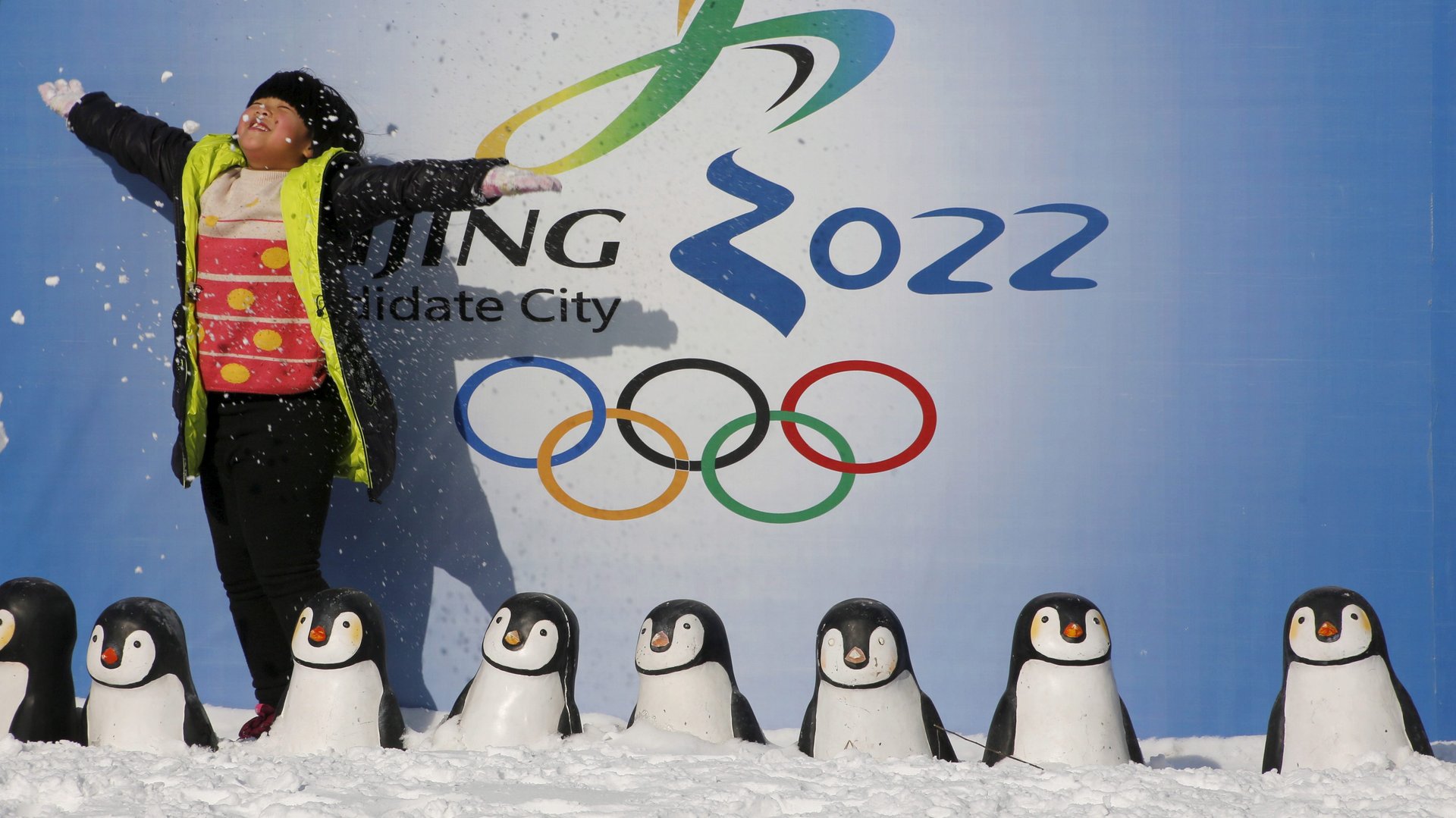The Winter Olympics is pretty much over natural snow, which is great for their next host
Technology is apparently more reliable than Mother Nature.


Technology is apparently more reliable than Mother Nature.
The 2018 Winter Olympics depended on snow that was at least 98% man-made at its main Jeongseon Alpine Center, a representative with Snow Making Inc., a Michigan-based company responsible for installing snow-making machines at Pyeongchang, told USA Today.
Though very cold, the South Korean host city turns out to be not snowy enough for winter sports. The organizing committee told Quartz it spent $6 million to deploy snow cannons, which compress cooled water to produce artificial snow, for the ski and snowboard events. At the previous Winter Olympics in Sochi and Vancouver, the hosts also brought in the fake stuff on skiing slopes due to relatively warm winter weather.
The next host for the Winter Olympics will take things to another level. With “minimal annual snowfall” in its mountain venues, Beijing will rely completely on artificial snow for the 2022 games, said the International Olympics Committee (IOC) in an evaluation report (pdf) published in June 2015, a month before it handed the hosting rights to the Chinese capital.
“There would be no opportunity to haul snow from higher elevations for contingency maintenance to the race courses so a contingency plan would rely on stockpiled man-made snow,” wrote the IOC report, which noted the snow issue as a risk, but nevertheless awarded Beijing the games.
Throughout the bid, Beijing, which will become the first city to stage both the summer and winter games, vowed that it has plenty of water supplies and snow-making equipment to provide excellent conditions for the 2022 games. By a narrow margin, the Chinese city defeated its only competitor Almaty, the largest city in Kazakhstan, which boasted its snowy winters with the slogan “Keeping It Real.”
Pro skiers actually prefer the fake stuff, though, because it is firmer, consistent, and more durable. But it’s not great for the environment. Researchers have noted that man-made snow melts more slowly than normal snow, and contains more minerals and nutrients than regular melt water—things that can damage the natural ground covering.
So how is Beijing going to produce snow for the 2022 games? Like Pyeongchang, it will use snow cannons to make fake snow, and China’s massive water diversion projects will make sure there is enough water to go around. One of the reservoirs close to Beijing will alone supply 360,000 cubic meters of water for the snowmaking effort, which is enough water to fill 144 Olympic-size swimming pool. The IOC expressed the thought that Beijing had underestimated the amount of water it would need for the games.